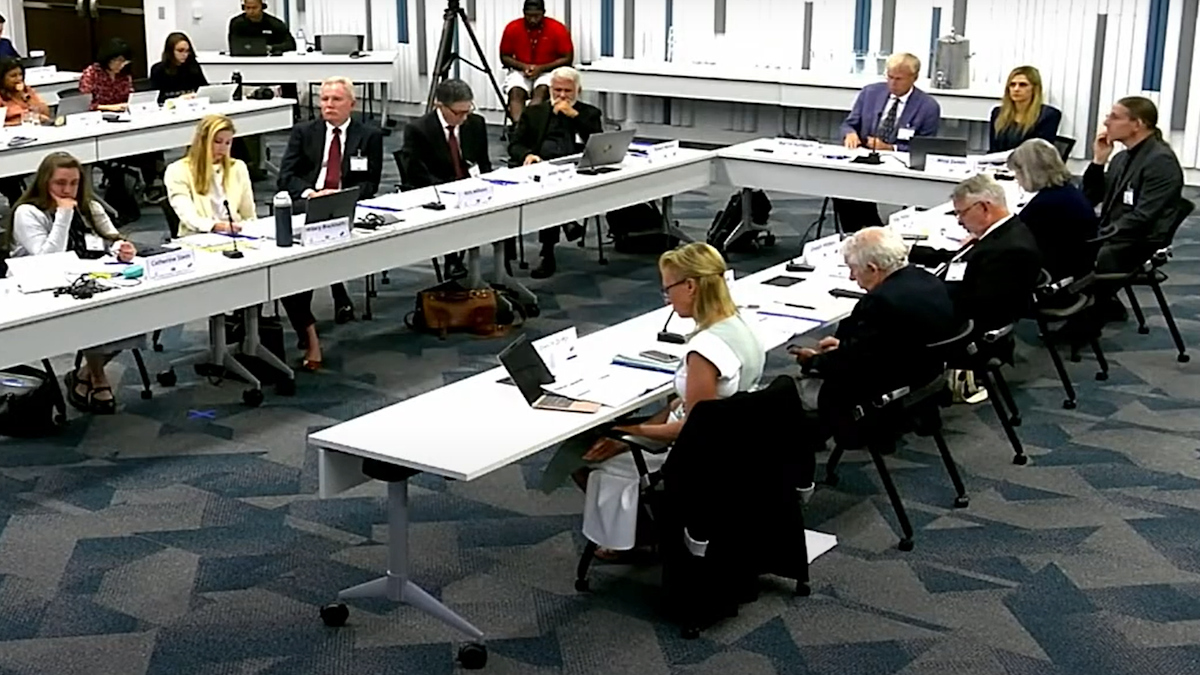
The CDC’s vaccines panel has voted to revoke an earlier recommendation to allow parents to choose whether to give measles, mumps, and rubella (MMR) and varicella (V) vaccines in one or two doses, but – in a somewhat bizarre twist – also to retain coverage by a federal immunisation programme.
The recently expanded Advisory Committee on Immunization Practices (ACIP) spent hours debating the efficacy and safety data for MSD/Merck & Co’s four-in-one ProQuad (MMRV) shot, fixating on the rate of febrile seizures seen with it versus the MMR+V jabs given separately.
Panellists voted by 8 to 3 – with one abstention – to change the CDC recommendations to state that MMRV is not recommended before age 4, and MMR+V should be offered instead. Data at the meeting suggested that only around 15% of parents choose MMRV for the first dose, with 85% opting for MMR+V.
Two of the panellists who voted not to change the recommendation – Cody Meissner and Joseph Hibbeln – said that febrile seizures are common in children of that age, most of which are not associated with vaccines, are not linked to any long-term problems, and the risks they pose do not outweigh the benefit of achieving herd immunity against these childhood diseases.
Meissner questioned why the ACIP was revisiting this issue, saying it was comprehensively discussed 15 years ago – a point similar to one he raised during the ACIP’s deliberations on vaccine preservative thimerosal at its June meeting – and questioned why there was any need to reduce parental choice if some would prefer their child to have fewer injections.
Hibbeln, meanwhile, warned against the consequences of losing herd immunity and remarked that “we need to have a darn good reason” to change longstanding recommendations, as confidence in vaccines can be adversely affected.
In remarks to the panel, MSD’s Dr Richard Haupt echoed those concerns, saying: “Any policy decision that compromises the clarity or consistency of vaccination guidance has the potential to further diminish public confidence.”
Discussion also went back and forth on what ACIP recommendations actually mean in practice, with a number of panellists clearly unsure of the implications for access to MMRV via health insurance programmes. Representatives of the Centers for Medicare & Medicaid Services and the Vaccines for Children programme both confirmed it would limit coverage and could force parents who wanted MMRV to pay for it out-of-pocket.
With that impact on choice swirling around the debate, the ACIP took a second vote on whether MMRV should still be available for free under the VFC for children under 4, a position seemingly at odds with the first recommendation and which could lead to unequal access. That was eventually backed 8 to 1, with three abstentions, including Meissner, who said he was unsure what he was voting for.
The MMRV debate was followed by a combative discussion about whether the hepatitis B virus (HBV) vaccine should be offered at birth, but a vote on that was deferred until day two of the meeting, where the ACIP is also expected to decide on changes to COVID-19 recommendations.
Day one kicked off with ACIP chair Martin Kulldorf delivering a rebuttal of oft-repeated claims that the committee has been staffed by people with vaccine sceptic views, and an attack on former CDC leaders Susan Monarez and Debra Houry, who had delivered damning testimony to Congress about the CDC’s direction under HHS Secretary Robert F Kennedy Jr the day before.
Kulldorf claimed Monarez “never contacted me as the ACIP chair about any of her questions or concerns, which would have been natural if she had such concerns, neither was I contacted by any of the three CDC leaders, who subsequently resigned.”
Meanwhile, there was also sharp criticism of the MMRV data presented at the meeting by Jason Goldman, president of the American College of Physicians (ACP), following the recent removal of leading medical organisations from the panel’s workgroups.
“You do not have those subject matter experts with the real-world experience to understand the implementation of these vaccines and the concerns of the patients,” he told the ACIP members.
“You don’t have the voice of the patients we take care for. You’re not looking at all of the aspects of how we evaluate vaccine implementation,” Goldman added. “You’re looking at very small data points and misrepresenting how it works in the real world and how we take care of our patients. So no, this was not a thoroughly vetted discussion. I want to see how we implement it, how it’s accepted by the population, what’s the feasibility, what’s the equity, what are the harms and benefits.”










